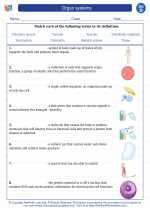Arteries
Arteries are blood vessels that carry oxygenated blood away from the heart to the rest of the body. They are a vital part of the circulatory system, which is responsible for delivering oxygen and nutrients to the body's tissues and organs.
Arteries have thick, elastic walls that allow them to withstand the high pressure of blood being pumped from the heart. The largest artery in the body is the aorta, which receives blood directly from the heart's left ventricle. As arteries branch out from the aorta, they become smaller and eventually divide into arterioles, which then lead to capillaries where the exchange of oxygen and nutrients occurs.
It's important to keep arteries healthy by maintaining a balanced diet, exercising regularly, and avoiding habits like smoking that can damage the blood vessels. Conditions such as atherosclerosis can lead to the narrowing and blockage of arteries, which can have serious health implications.
Study Guide: Arteries
- What is the function of arteries in the body?
- Describe the structure of arteries and how it differs from other blood vessels.
- What is the largest artery in the body and where does it receive blood from?
- Explain how arteries branch out and lead to the capillaries.
- What are some ways to keep arteries healthy?
- What are some potential health implications of artery blockage?
Understanding the role of arteries in the circulatory system is crucial for comprehending how the body delivers oxygen and nutrients to its cells. By studying this topic, you'll gain a deeper appreciation for the importance of maintaining a healthy cardiovascular system.
[Arteries] Related Worksheets and Study Guides:
.◂Science Worksheets and Study Guides Fourth Grade. Organ systems
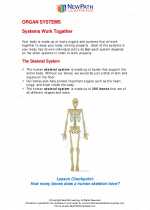
 Worksheet/Answer key
Worksheet/Answer key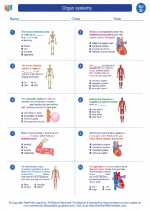
 Worksheet/Answer key
Worksheet/Answer key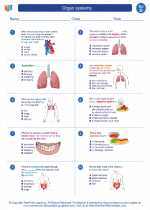
 Worksheet/Answer key
Worksheet/Answer key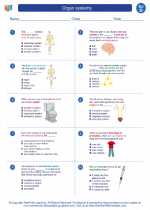
 Vocabulary/Answer key
Vocabulary/Answer key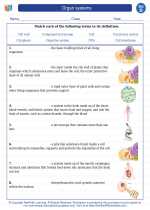
 Vocabulary/Answer key
Vocabulary/Answer key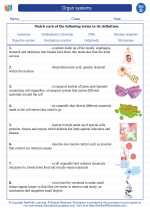
 Vocabulary/Answer key
Vocabulary/Answer key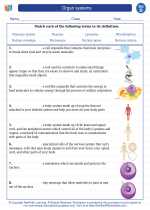
 Vocabulary/Answer key
Vocabulary/Answer key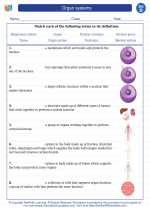
 Vocabulary/Answer key
Vocabulary/Answer key